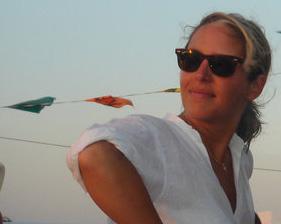Club Life
14.08.2012 Gstaad LivingOnce upon a time, clubs were exclusively for gentlemen. They were created by and for the English upper classes. Women did not join. Tradesmen were not invited, and clubs were completely exclusive, such as White’s in London, established in 1693. The clubs were primarily political back then, having grown from 18th century coffee houses, though modern clubs have any number of reasons for being.
Groucho Marx was neither English nor upper class, but he understood the concept best. In a telegram to the Friars Club of Beverly Hills he said famously, “Please accept my resignation. I don’t want to belong to any club that will accept people like me as a member.” After all, he worked for a living.
Nowadays there is a club for everybody. There are business clubs, clubs for women, clubs for Gentiles, clubs for Jewish people, clubs for golfers, clubs for skiers, clubs for tennis, beach clubs, nightclubs, and even yachting clubs in landlocked places such as Gstaad. Evidently, people really like clubs, and the socially insecure go out of their way to seek acceptance. They are usually soporific types if you ask me, which you haven’t, but I’ll bet on it anyway. We all know that special breed. They harass you for a signature and demand rather than request consideration. They are no Groucho Marx, and they would probably fit in better at a “gentlemen’s club” of the Playboy variety.
Fortunately I have only once been in the position to make such requests. For most of my life I have been happily club-free. I never wanted to be a member of any particular club nor had I ever found a club that had many friends with whom I wanted to regularly associate in our own clubhouse. Physical lethargy prevented me from joining any athletic clubs, and perhaps the general lack of youth clubs precluded me from finding a club of my own. Certainly the number of terrific bores who frequent many of the world’s “exclusive” clubs was a disincentive.
How times change. I joined three clubs this year. I surprised myself to realize that I actually want to spend time in places where I know a lot of people. Why be a stranger in a strange land? It’s as boring as going to a party where you don’t know anybody. But stranger things have happened. Someone recently told me about a rich man who came to town and invited people he didn’t know to his birthday party. Apparently he was surprised when people declined. That’s the thing about clubs: Proximity doesn’t necessarily ensure association, much like befriending members of the English upper class.
After a lifetime frequenting the Eagle Club here in Gstaad as if it was my own, I am finally a legitimate member. I had to do some light lobbying for support, but in spirit I have always felt like a member, having enjoyed the Eagle since I was small. Both my parents are members, my father being the club’s longest-standing life member and certainly one of the most vocal. You can count on him to reprimand you for sneaking a quick phone call on the terrace or castigating non-skiers who enjoy use of the best tables.
He’s right, but when you have a club as inclusive as the Eagle, you can’t expect everyone to follow the rules. But they should. Club rules are there for good reasons and members must know what they are and keep their guests informed. Don’t be surprised if someone throws your telephone into the snow next time you take a call at the top of the Wasserngrat!
The second club I joined this year is the Andes. The founder members invited me to join, and thus I was spared the embarrassing appeals. For those of you who don’t follow these sorts of things, there is an inter-club ski week every year in St. Moritz. The Corviglia Club hosts the event, which includes such clubs as the Brook from New York and Madrid’s Puerta de Hierro. The Andes has no clubhouse and was only invented recently to include friends of the Corviglia who are not members of any participating clubs. The Eagle Club has been banned for conduct unbecoming, though I intend to remedy this in due course.
Most recently I joined 5 Hertford Street, Robin Birley’s new jewel in London, the mother of clubland. When Richard Caring bought the Birley empire, none of those clubs appealed to me. The gentlemen’s clubs were off-limits, and places such as the Groucho and Soho House never interested me, as I don’t know any of the members. When Hertford Street opened I was thrilled to be invited and even more so to finally have a place to go where I know people, or at least recognize them.
This is what I love about walking into Hertford Street and the Eagle—all the familiar faces. Did you think I’d join a club to network or make new friends? Bah!




